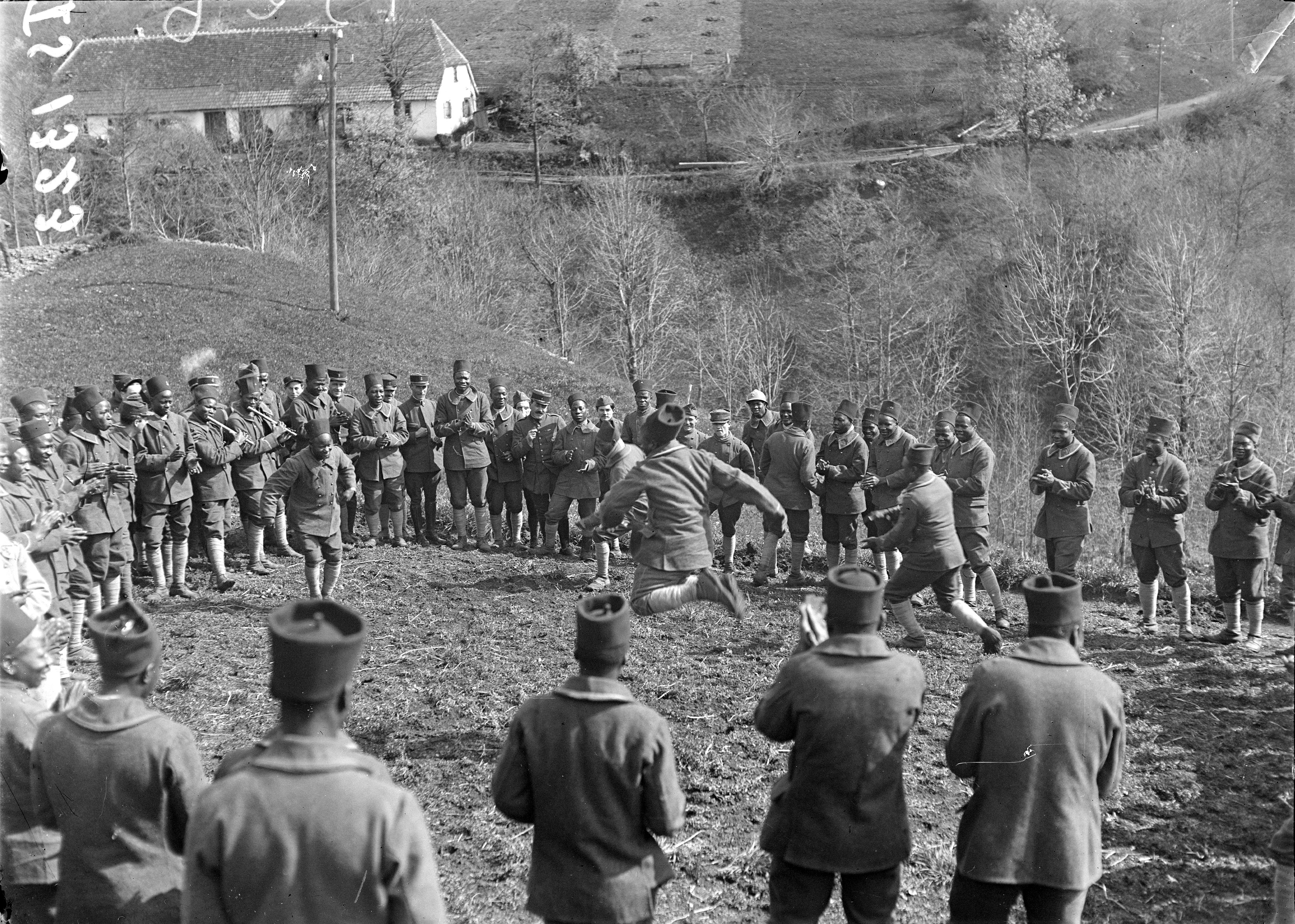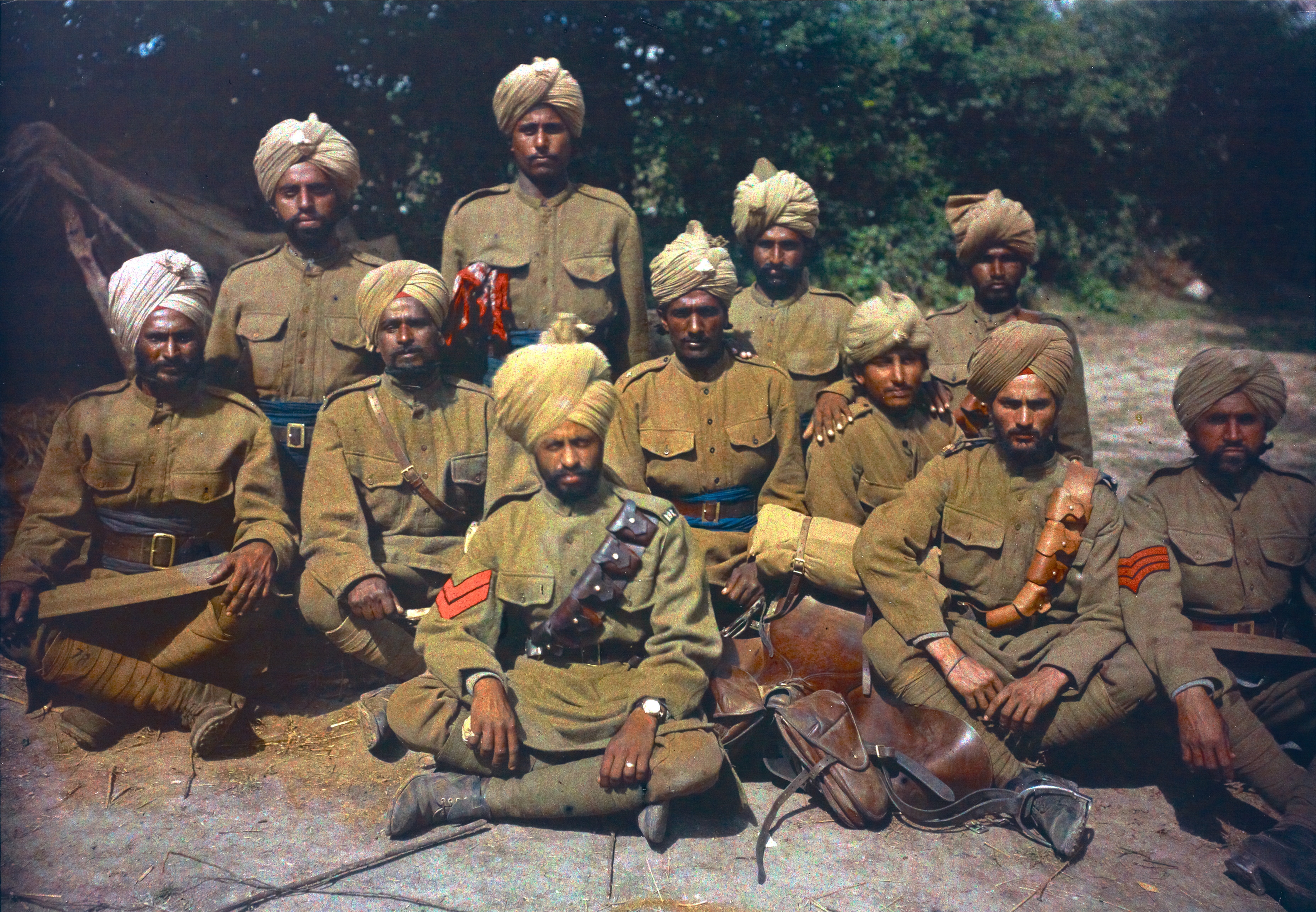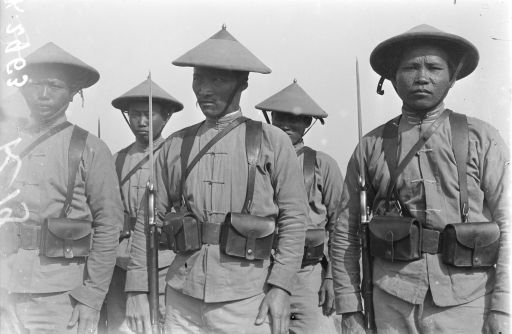The organiser of an international conference about colonies and the First World War, Olivier Litvine, speaks to Centenary News about the project.
From the 24th-26th February 2014, the University of Dhaka, Bangladesh, will host a two day conference with academics from France, Germany, Ireland, America, India and Bangladesh about ‘War and Colonies 1914-1918’.
An exhibition – held at the Gallery of Alliance Française – will also feature rare photographs of colonial soldiers during the conflict.
Mr. Litvine, the Director of Alliance Française de Dhaka, taught British History at university during the 1990s and speaks of his fondness for the poets of the First World War, including Wilfred Owen and Siegfried Sassoon.
He cites a figure of 650,000 colonial troops who fought on the European battlefields of the First World War, with colonies such as German East Africa becoming theatres of war in their own right.
Mr. Litvine told Centenary News that colonial soldiers during the First World War are “often forgotten”, and in collective memory it is the French poilu or the British Tommy which remains the bedrock of Western ideas about the war.
 Senegalese infantrymen (tirailleurs sénégalais) of the 44e BTS (44th Battalion of tirailleurs sénégalais) dancing in their cantonment. Bourbach-Le-Haut, Haut-Rhin, Alsace, North-Eastern France, April-May 1918, © Alliance Française de Dhaka
Senegalese infantrymen (tirailleurs sénégalais) of the 44e BTS (44th Battalion of tirailleurs sénégalais) dancing in their cantonment. Bourbach-Le-Haut, Haut-Rhin, Alsace, North-Eastern France, April-May 1918, © Alliance Française de Dhaka
What inspired you to organise the conference and exhibition?
It was a “conjunction of factors and events” which led Mr. Litvine to pursue the idea of a conference about colonial forces during the First World War.
His background in teaching at university and long-standing friendship with Frédéric Rousseau – now one of France’s leading experts on the First World War – were all factors in the development of a project exploring the colonial aspect of the conflict.
“Having had first-hand experience of former British India – this is my ninth year on the subcontinent – and a passion for England’s first colony – Ireland – it seemed like a natural avenue to explore”.
“Opportunity makes the thief, as one says, so the trigger was obviously the Centenary and more specifically my meeting with Joseph Zimet, the head of the official commemorations of the Centenary in France, who had come to the Ateliers of Institut Français (a yearly meeting of the officers involved in the French cultural network abroad) to inform us about the Mission du Centenaire (France’s official Centenary programme). I went up to him after his presentation and asked him if the Mission would contemplate supporting an event in Bangladesh related to the role of colonies”.
Mr. Zimet’s positive response, followed by a series of academics expressing their “unqualified support” for, and willingness to take part in the conference, is something that Mr. Litvine has said has “amazed” him.
 Indian troops from the Punjab in France, 1917, © ECPAD, Collection Tournassoud
Indian troops from the Punjab in France, 1917, © ECPAD, Collection Tournassoud
How important is it to emphasise the role of the colonies during the First World War?
“It seems to me crucial to stress the role of colonial troops in the war”.
“Yes, the Western Front was in France and the landscape bears witness to the horrendous violence that was unleashed, as do the monuments and cemeteries… Yet, it seems that role of colonial troops, of colonies in economic terms and the impact of the war on the colonised deserves scrutiny”.
“It is interesting to shift the focus”, Mr. Litvine adds.
Asked whether the First World War is a topic which attracts interest in Bangladesh, Mr. Litvine stated that he wouldn’t dream of “selling” an event dealing solely with the French experience of the war: “very few people would be interested”.
The conference will feature five papers dealing explicitly with the role of Bengalis during the First World War. Something Mr. Litvine hopes will help the project to engage with a wider audience, and allow people to “rediscover a part of their history that subsequent events have obscured”.
This is one of the main reasons Bangladesh does not focus on the history of the First World War, he says. It is often shadowed by the Second World War, the process of decolonisation, Partition and the War of Independence.
Mr. Litvine points to the project’s partnership with the Ministry of Liberation War Affairs of Bangladesh and the Museum of Liberation War.
“Both focus on the latter half of Bangladesh’s twentieth century history, but their partnership is a recognition of the link between World War One and the subsequent struggles for independence”.
Group of Moroccan Spahis leaving Saint-Rémy-de-Provence (near Marseilles) for Arles. Provence, South of France, April 1917, © Alliance Française de Dhaka
How does the photographic exhibition fit in with the conference?
“The photos are important because they provide a human element that is tangible. Only two of the pictures show soldiers fighting; this is no Spielberg like exhibition, no sensationalism, just the faces and postures of real men fighting a dirty war away from home, who never thought their images would appear on the walls of a gallery in Dhaka”.
Sourced from the archives of the French Ministry of Defence, Berlin History Museum and the Ulster Museum, the striking images which make up the exhibition show colonial troops from the furthest corners of Europe’s empires.
The images bridge the gap between history and memory, Mr. Litvine says.
“These photos help us to understand where we are today and how we got here”.
“The nucleus of the first Chinese community in Paris was formed by Chinese workers who had come to work in munitions factories or were involved in “cleaning up” the battlefields. There is a photo of some of these workers, which I hope, along with the other images at the exhibition, will really provoke thought and discussion”.
The exhibition, which is also available to view online, is already being used in French schools as a teaching resource. Mr. Litvine hopes that with the help of Institut Français – which has provided the main support for the event through the d’Alembert fund for exchange of ideas – that the exhibition will be able to travel to other parts of Asia.
To explore the onine photographic exhibition, visit the War and Colonies 1914-1918 website here.
To find out more about the War and Colonies 1914-1918, click here.
All images are copyright and courtesy of the Alliance Française de Dhaka
© Centenary Digital Ltd & Author
